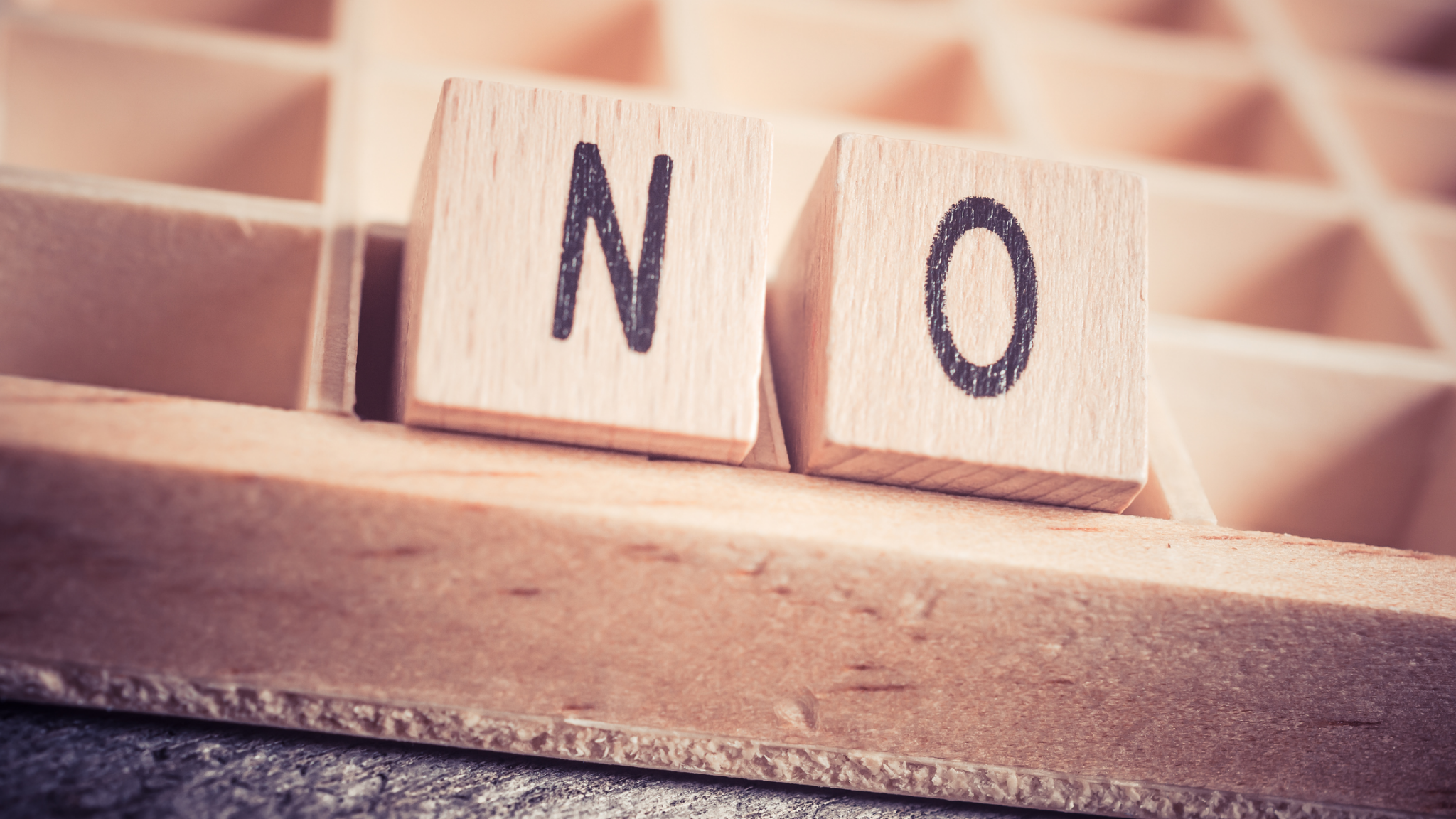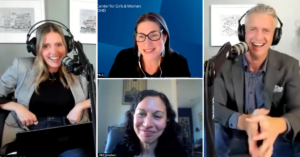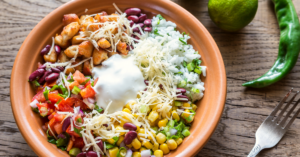One of the best pieces of advice I’ve ever heard is “No is a complete sentence.” Especially as women, we always feel obliged to include an addendum to the word “no” to justify using it. Why is that? When a man doesn’t want something, like something or feel like doing something, the “no” is the end of the discussion. If you’re like me and also prone to a guilty conscience, you’ve likely written a complete backstory around your “no” before you even opened your mouth.
Learning to say no—in all aspects of life—is incredibly important. But what’s even more important is learning to trust your no’s.
The Importance of No
Being able to say “no” to things, people and events that aren’t of interest or positive influence on us is a form of self-care. Think about it this way: There’s a movie you can’t stand (mine is Silence of the Lambs). I just don’t like being scared and it seems way too real. My palms get sweaty just thinking about it. Would you choose to watch that movie every single Friday night? Absolutely not! It would put you in a bad mood for the rest of the weekend. Sorry, Jodie Foster. You’re amazing but I just can’t.
One lesson we’ve taken away from these recent WTH events has been that self-care is a key component of looking after our mental health. So when we say “no” to something we know isn’t serving us, we’re empowering ourselves, building up our confidence and looking after our mental wellbeing. That action, in turn, has a ripple effect throughout the other aspects of our lives.
Learning How to Say No
I’m a people pleaser. Always have been. Need something done even though you suspect I’m busy? Just ask and I’ll find a way to make a day last 25 hours. I can’t even count the number of times I’ve dragged myself out the door for something or forced myself to shrug off another negative encounter with someone who doesn’t treat me well. Add to that anxiety and depression and that behavior and mindset just isn’t sustainable. It can also lead people to take advantage of you and your time.
This is why I’ve made a conscious effort to get better at recognizing my limits and setting boundaries. Doing both of those has helped me say “no” faster when I’m physically and mentally maxxed out and planning is key. I love lists and calendars, so I try to put everything down as far out as I can plan. Seeing all of the obligations and tasks in front of me, I can also factor in the things I need to do to support my physical and mental health, like exercise, meditation and rest. Once my docket is full, it’s full and it’s time to start saying “no.”
Finding Balance Between Yes and No
I discovered I got so good at “NO” I didn’t have anything social on my calendar. I’m laughing as I type this because, though I love solitude, being with friends and volunteering for causes I believe in fills me with joy. I have made it my mission to layer in time with friends at least once every two weeks. Even if it’s just a long walk. I have a monthly reminder to sign up for service hours at a charity I love. Penn and I had been so good about weekly date nights before the pandemic so it’s tough to admit that getting out of the house together once a month has been hard.
When you’re learning to say “no” more often, you need to remember why and what makes you still want to say “yes.” Because just as good as saying “no” feels, saying “yes” to show up when you’re needed and the gratitude that follows is always pretty amazing. Once you find the right balance, you’ll notice the effect it has on your stress levels, sleep and overall well being.
How do you handle saying “no”? Share your tips for becoming more confident in your no’s in the comments.




